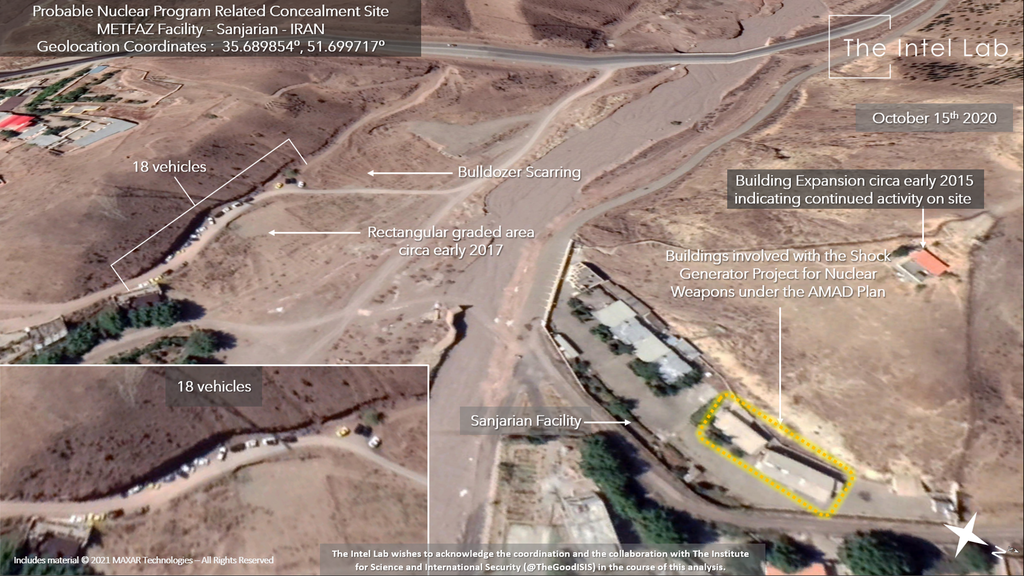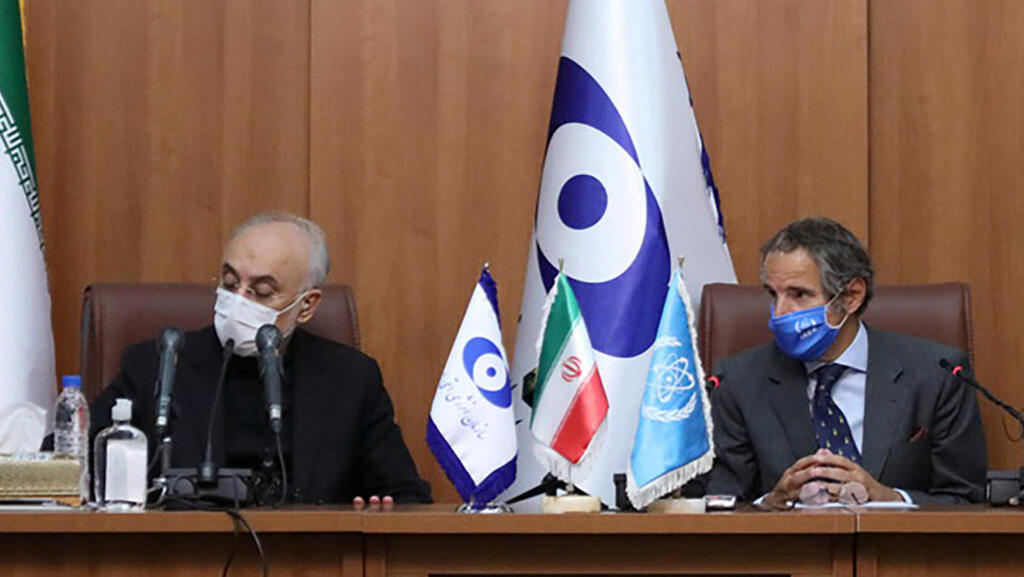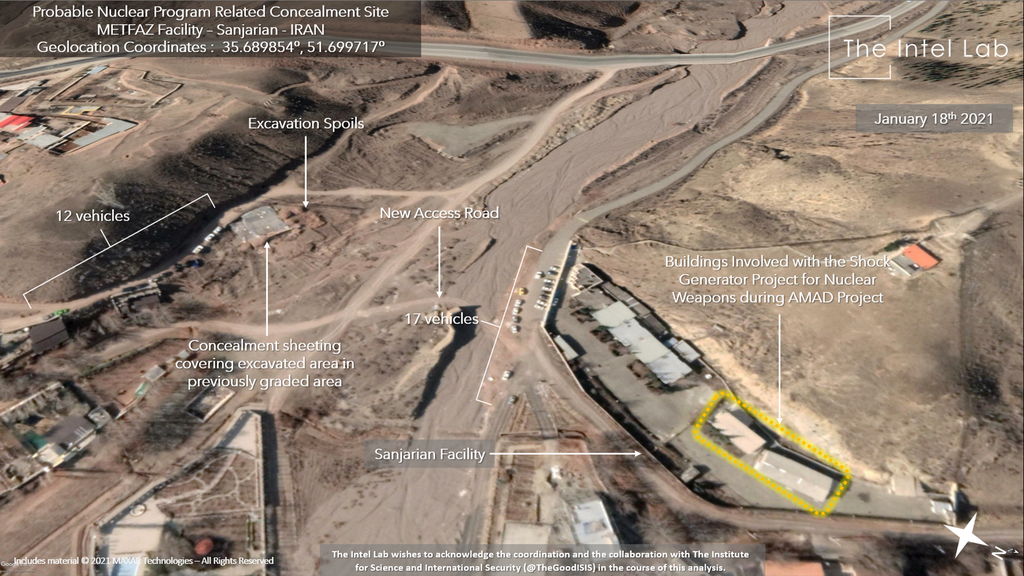Getting your Trinity Audio player ready...
A site revealed by Israel in 2018 to be an Iranian nuclear facility has seen a flurry of recent activity, Fox News reported late Tuesday, based on satellite images.
The images obtained by Fox from Maxar Technologies show that in October 2020, 18 vehicles were spotted at Sanjarian, near Tehran in northern Iran. More vehicles were recorded there in January, along with construction work including the preparation of a new access road.
The road was apparently covered over in March, leaving images of "excavation swirls and new trenches," Fox News reported, quoting analysis by Itay Bar Lev of Intel Lab who worked in conjunction with the Institute for Science and International Security.
The institute is headed by David Albright, a former UN nuclear inspector who first cast doubt on the claims by the George W. Bush administration that Iraq was producing weapons of mass destruction.
Sanjarian featured in the Iranian nuclear archive seized from Tehran by Israel's Mossad intelligence agency in 2018, and is suspected of being a manufacturing site for "shock wave generators" used to miniaturize nuclear weapons.
3 View gallery


A satellite image of the Sanjarian nuclear site taken in October 2020
(Photo: Intel Lab)
The U.S. informed Iran on Tuesday that it must let the International Atomic Energy Agency - the United Nations' nuclear inspection body - continue to monitor its activities, as laid out in an agreement in place until June 24.
If Iran did not allow the monitoring, the U.S. said, it would risk the ongoing talks on reviving the 2015 nuclear deal that former U.S. president Donald Trump quit in 2018.
The talks in Vienna were due to resume later this week.
"We strongly encourage Iran to avoid any action that would prevent the collection of or IAEA access to the information necessary for it to quickly re-establish ... continuity of knowledge," a U.S. statement to a meeting of the IAEA's 35-nation Board of Governors said.
"Such action would, at a minimum, seriously complicate ongoing efforts to reach an understanding on how Iran can return to compliance with its JCPOA commitments in return for a similar U.S. resumption," it added, referring to the 2015 nuclear deal by its full name, the Joint Comprehensive Plan of Action.
3 View gallery


Ali-Akbar Salehi, the head of Iran's Atomic Energy Organization, hosting IAEA chief Rafael Grossi last year
(Photo: Reuters)
Speaking to the House Foreign Affairs Committee on Monday, U.S. Secretary of State Antony Blinken said there was no clear indication that Iran was committed to returning to compliance with the nuclear deal.
"We've been engaged in indirect conversations, as you know, for the last couple of months, and it remains unclear whether Iran is willing and prepared to do what it needs to do to come back into compliance," he said.
Blinken also said that the breakout time for Iran to assemble a nuclear bomb could be reduced to just weeks if Tehran keeps violating the terms of the original 2015 accord.


